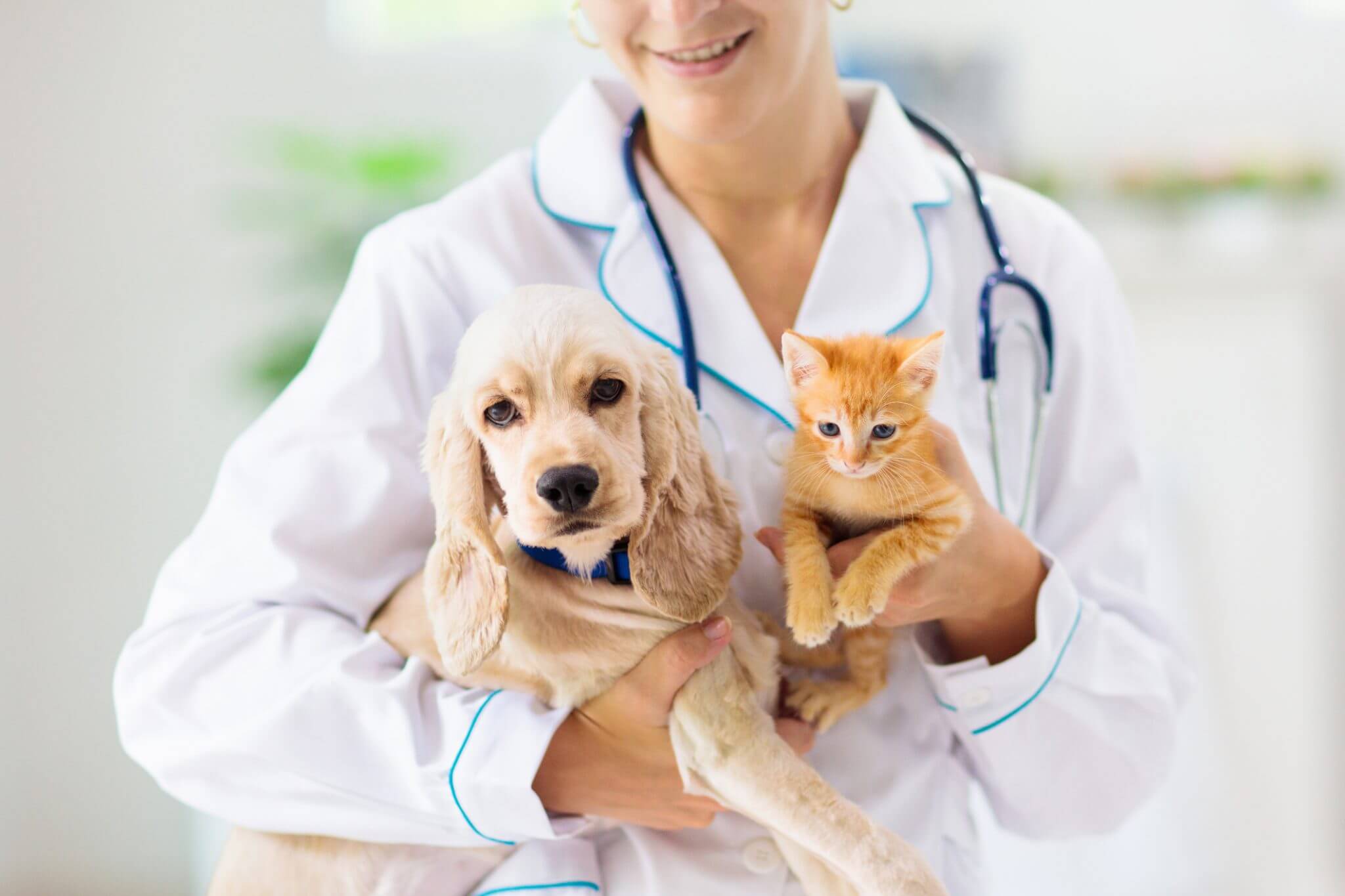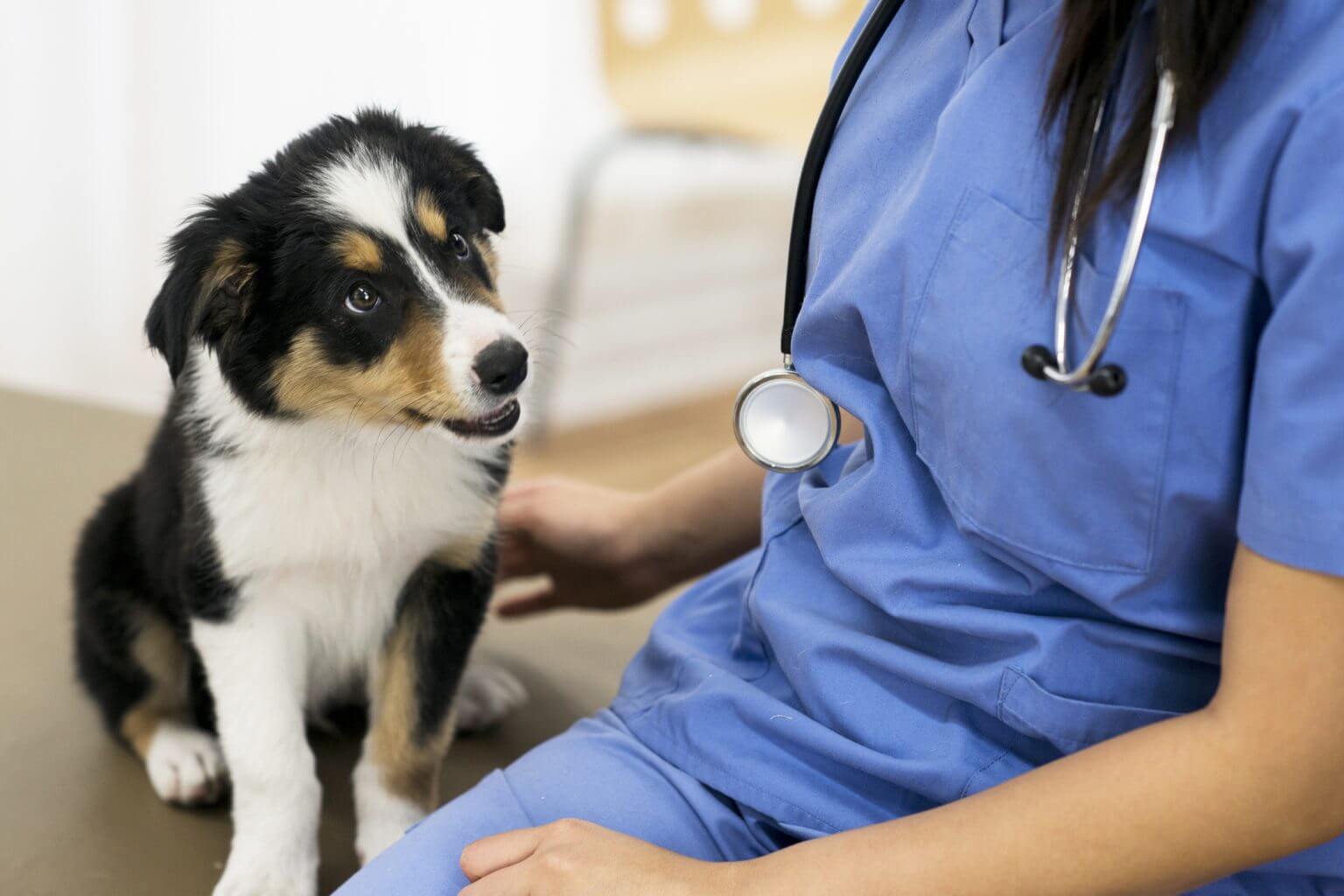
The threat of parasites and worms are a reality for your dog and cat.
Affecting particular breeds and pets that have access to the outdoors, parasites and worms can cause small ailments like stomach upset, up to extreme cases of death.
The most common type of parasites and worms that affect pet dogs and cats are hookworms, whipworms, roundworms, and tapeworms.
The effects of worms are particularly pervasive, as they can lay dormant in your pet’s system for quite some time before physical symptoms manifest. If your pet is experiencing rapid and random weight loss, diarrhea that isn’t remedied via diet modification, anemia, scratching of the anal opening, unexplained vomiting, severe bad breath that can’t be cured by regular brushing, or severe coughing, then it is recommended that you take your pet to a veterinarian – it is a very real possibility that your pet is experiencing some sort of parasitic invasion.
Why Is a Stool Sample Required? Some parasites are very evidence, with adult roundworm and tapeworm being very visible in stools. However, once they are observable with the naked human eye, then usually your dog or cat is experiencing advanced stages sickness. A stool sample will be able to analyze feces to check for worms as well as for disconnected segments. A stool sample is also required to discover eggs, which tend to be microscopic in size.

Learning About The Common The Parasites And Worms That Affect Your Pets
How Do Whipworms Affect Pets?
Whipworms tend to affect dogs, but it is not unnatural for cats to be infected by whipworms. Looking like small pieces of thread, whipworms tend to occupy your pet’s intestine. Whipworms do not lay many eggs, so several stool samples need to be examined to determine if whipworms are the potential culprit. Stool that is encased in mucus or extreme weight loss is usually attributed to whipworm infestation. Fortunately, whipworms hardly cause deaths.
How Do Roundworms Affect Puppies?
Roundworms tend to affect puppies, especially puppies living in close quarters. Puppies that come from puppy mills and pet shops tend to be inundated with this parasite. Roundworms tend to be very common in puppies and kittens due to the way it is spread. The roundworm larva can migrate between the mother and the developing fetus. It can also be spread during nursing time. Once the larva migrates, they grow up to 5 inches in the dogs or cats intestine. There they start to absorb nutrients from the intestinal tract, then it will start laying eggs. Roundworms can lay up to 1 million eggs over the span of a couple of weeks. Due to this number, many kittens and puppies with advanced stages of infestation tend to have large bellies and mid sections. Severe infestations can cause a blockage, killing the host. Not only are puppies and kittens in danger of roundworm infestation, but an adult can be exposed as well.
How Do Hookworms Affect Dogs?
Hookworms are also much more common in dogs and puppies. Hookworms secure themselves to the small intestines, sucking up blood for nourishment. Puppies and dogs get exposed to hookworms via stool that has been contaminated by it or ingesting the eggs by other means. Puppies can also be exposed to the parasite by nursing on an infected mother. Due to the loss of blood, advanced stages of hookworm infestation tend to cause anemia. Poor weight, loss of interest in favorite foods and treats and low energy are all hallmarks of a hookworm infestation.
How Do Tapeworms Affect Cats And Dogs?
Tapeworms come from fleas, putting dogs and cats in danger. Cats and dogs that have access to the outdoors – especially outdoor areas where tall grass tends to grow – are all exposed to fleas that are infected with tapeworms. Tapeworms look like several pieces of tape secured together, with distinct tiny brick like sections. Although tapeworms can grow up to 5 to 6 inches in length, the first visible signs of tapeworm infestations typically manifest in tiny segments attached to the fur around the pet’s anus. Looking like small pieces of rice, these tapeworm segments move when agitated. The segment also contains tapeworm eggs. Tapeworm infestations tend to be aggressive, and that most over-the-counter medications cannot help. It is important that you visit a veterinarian as soon as possible.

Preventing Parasites And Worms In Your Pets
The key to a long canine and feline life is prevention. Make sure that your cat and dog visits a veterinarian on a regular basis. Most seemingly healthy pets can go with yearly visits. But dogs and outdoor cats should be examined at least twice a year. Dewormers that are formulated with active ingredients like piperazine work by paralyzing parasites and worms, halting their assault on your pet’s intestinal tract. Stronger dewormers can be given to you by your veterinarian. To reduce your pet’s exposure to fleas that may have parasites clinging to them, it is recommended that you do not allow them to wonder in marshes and areas with tall grass. These tend to be breeding grounds for parasites, worms, and bacteria that can infect your pets. At University Animal Clinic, we know how important preventative care is. Click here to learn more about our wellness plan.
In many places, it is required by law that pets are vaccinated before they are able to go to dog parks and other places where dogs congregate. Even though most pet owners follow this rule, it is still important to be able to pinpoint symptoms. You do not want a sick dog to potentially expose your pets to illness. A dog that looks particularly lethargic, dirty, and look like they have excessive bloating around the midsection; are all potential signs of a dog that is infected. For outdoor cats, consider converting them to indoor cats. Outdoor cats are exposed to the elements, predators, aggressive cats, and parasites. An outdoor cat generally lives a much shorter life than an indoor cat.
